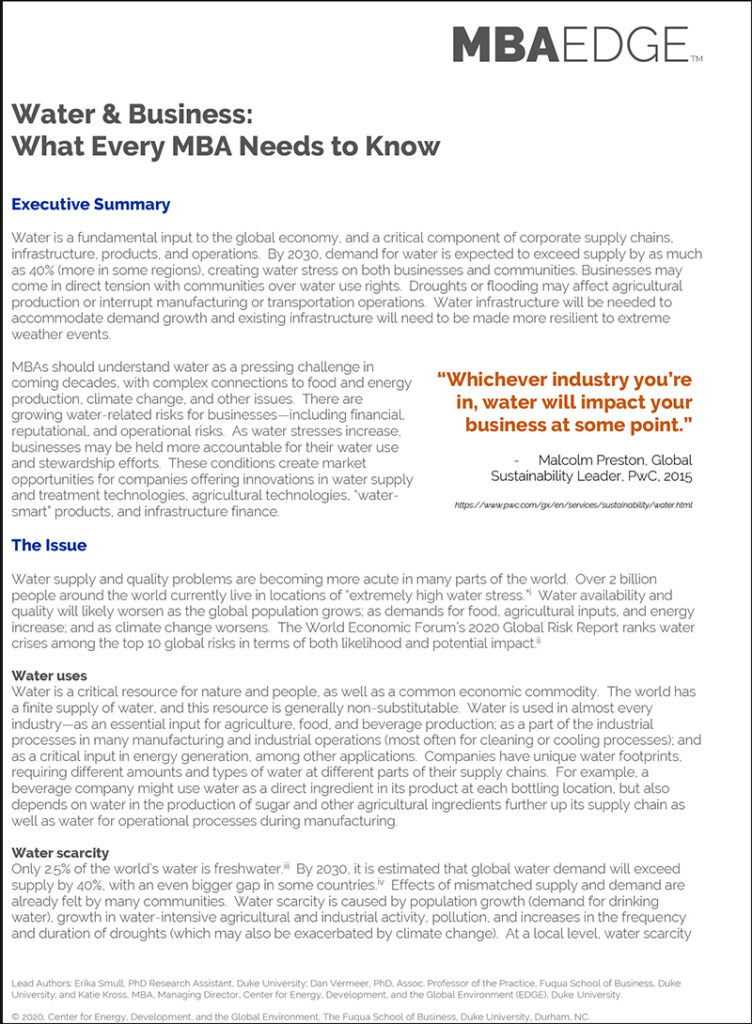New briefing paper highlights the business impacts of water
Water will become an ever-more important issue for businesses in coming decades. Water-related risks for businesses are increasing—including financial, reputational, and operational risks. As water stresses increase (demand for water is expected to exceed supply by as much as 40% by 2030), businesses may be held more accountable for their water use and stewardship efforts. There will also be new market opportunities for companies offering innovations in water supply and treatment technologies, agricultural technologies, “water-smart” products, and infrastructure finance.
A new 6-page briefing paper from EDGE, “Water & Business: What Every MBA Needs to Know”, summarizes the key issues for managers and investors, including both business risks and opportunities. “Water is an essential input to many businesses’ products and supply chains–from the water needed for agricultural production of raw materials (food products and textile crops) to the water needed for cleaning and cooling processes in industrial production cycles,” says EDGE managing director Katie Kross.
“There are critical vulnerabilities where corporate and industrial water demands come into conflict with community water needs, or where drought or flooding threatens to interrupt supply chains. But companies that understand their vulnerabilities can understand how to develop resiliency and innovate for better water solutions.”
The paper draws on examples from companies like Nestle Water, DuPont, Kraft Heinz, and General Motors.
The paper is the second to be published in the “MBA EDGE” series, after “Climate Change & Business: What Every MBA Needs to Know.”
—
